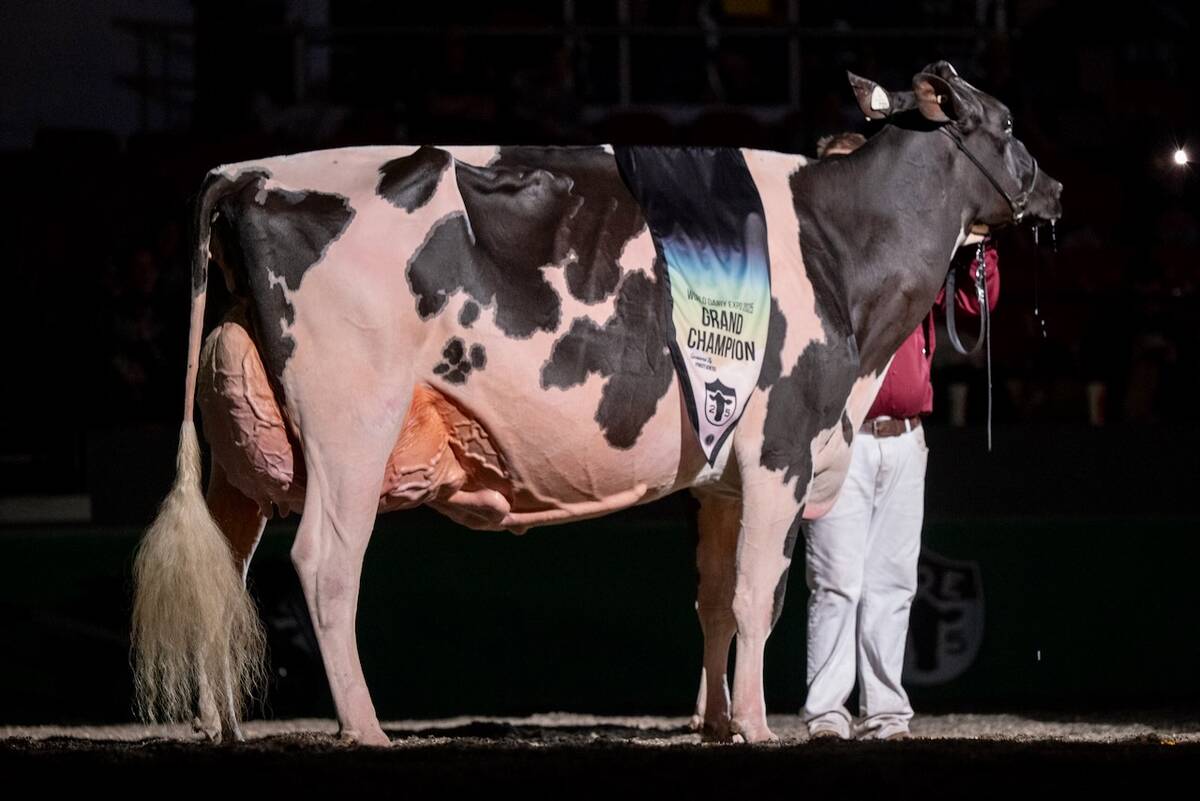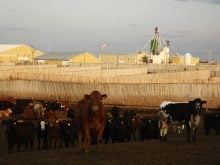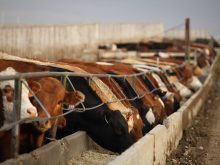Like all other livestock producers affected by the closed U.S. border, Saskatchewan goat breeders hope the situation will soon change.
“We’re caught up in it as bad as the beef industry,” said George Fisher, a producer from Bulyea and a director of the Saskatchewan Goat Breeders Association.
Membership in the association is down in part because people are cutting costs wherever they can and fees are among the first to go.
The association has about 60 members but Fisher said probably four times that many own goats.
Read Also

Canadian-bred cow wins World Dairy Expo Holstein show
A cow bred in Saskatchewan, Lovhill Sidekick Kandy Cane, is the Grand Champion Holstein at the 2025 World Dairy Expo.
“They’re doing the best they can,” he said of producers. “Some are increasing their herds. Some are culling heavily and keeping good offspring.”
The dilemma for those who produce breeding stock is the inability to ship to Mexico via the United States.
Meat producers are struggling with prices that might top 60 cents a pound live weight, compared to $1 they earned at one time.
Fisher said producers, who met in Regina recently for their annual meeting, want to improve their industry so they are ready when international and interprovincial shipping restrictions are changed.
He said producers continue to push governments for a federally inspected slaughter plant that would help eliminate trade barriers. The market for goat meat is mainly in the ethnic population in Ontario.
The association is working on an on-farm food safety program similar to what the sheep industry has done. It is also testing identification tags for a traceability program.
Nationally, a scrapie surveillance program is in the works.
“There may or may not be trial herds in Saskatchewan,” Fisher said.
Closer to home, producers are preparing for summer shows, including one in Yorkton in July and the annual event at Canadian Western Agribition, which they hope will expand and involve more people.
“We’re in a state of turmoil but we’re going full tilt,” Fisher said.















